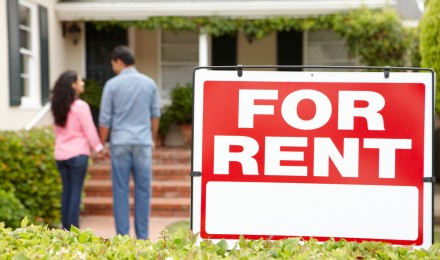If you’ve lived in your house for several years and raised your children in this home, there’s undoubtedly an emotional attachment. However, if retirement is right around the corner, you have an important decision to make. Do you stay in this house, or do you sell and rent a smaller place?
For some retirees, the decision to sell is a no-brainer. These individuals may approach renting with great excitement and eagerly search for another place. But not all retirees feel the same way.
Renting has its benefits, but understandably, it’s not for everyone. However, if you’re on the fence and need some convincing, here are four smart reasons to rent in retirement.
By selling your house, you are able to tap into your home’s equity. Since your income is likely to drop when you retire, any profit from the sale of your house can go into a savings account, which can help sustain you financially for the remainder of your life. Between your profit and income sources (such as a 401(k) or Social Security), selling your house may alleviate financial worries.
Due to careful planning, some retirees are able to pay off their home by the time they leave the workforce. But even if you pay off your home and no longer have a mortgage payment, home maintenance and repairs are unavoidable.
Some repairs could be minor, such as repairing a clogged toilet or servicing your HVAC system. But the older your house, the likelihood of major problems. You may need a new roof, new windows, a new heating and air system, or your bathrooms and kitchen may require an update. This takes money, and when you’re living on a fixed income, there may be little left for home repairs.
However, this is not an issue when you rent in retirement. If anything in the rental home or an apartment breaks, it is your landlord’s responsibility to fix the issue.
Now that you’re not tied to a job, you have the time and freedom to enjoy new adventures. Maybe you always wanted to live in the city, near the beach or perhaps in the mountains. Or maybe you live far from children or grandchildren and prefer living closer to their location.
When you own a house, you can’t just pick up and move whenever the mood strikes. It can take months or longer to sell your house, depending on where you live. But as a renter, simply wait until the end of your lease and give your landlord the appropriate notice. You can then move closer to your family, or experience life in a particular area for a few years, and then move on to the next city.
If your retirement income doesn’t compare with your income while working, selling your home and renting is an excellent way to lower monthly expenses, helping you maintain a certain quality of life. Plus, in some locations the cost of renting is by far cheaper than the cost of owning. You can enjoy a lower housing payment, plus cheaper utilities when you move to a smaller place.
If you’ve lived in your house for several years and raised your children in this home, there’s undoubtedly an emotional attachment. However, if retirement is right around the corner, you have an important decision to make. Do you stay in this house, or do you sell and rent a smaller place?
For some retirees, the decision to sell is a no-brainer. These individuals may approach renting with great excitement and eagerly search for another place. But not all retirees feel the same way.
Renting has its benefits, but understandably, it’s not for everyone. However, if you’re on the fence and need some convincing, here are four smart reasons to rent in retirement.
By selling your house, you are able to tap into your home’s equity. Since your income is likely to drop when you retire, any profit from the sale of your house can go into a savings account, which can help sustain you financially for the remainder of your life. Between your profit and income sources (such as a 401(k) or Social Security), selling your house may alleviate financial worries.
Due to careful planning, some retirees are able to pay off their home by the time they leave the workforce. But even if you pay off your home and no longer have a mortgage payment, home maintenance and repairs are unavoidable.
Some repairs could be minor, such as repairing a clogged toilet or servicing your HVAC system. But the older your house, the likelihood of major problems. You may need a new roof, new windows, a new heating and air system, or your bathrooms and kitchen may require an update. This takes money, and when you’re living on a fixed income, there may be little left for home repairs.
However, this is not an issue when you rent in retirement. If anything in the rental home or an apartment breaks, it is your landlord’s responsibility to fix the issue.
Now that you’re not tied to a job, you have the time and freedom to enjoy new adventures. Maybe you always wanted to live in the city, near the beach or perhaps in the mountains. Or maybe you live far from children or grandchildren and prefer living closer to their location.
When you own a house, you can’t just pick up and move whenever the mood strikes. It can take months or longer to sell your house, depending on where you live. But as a renter, simply wait until the end of your lease and give your landlord the appropriate notice. You can then move closer to your family, or experience life in a particular area for a few years, and then move on to the next city.
If your retirement income doesn’t compare with your income while working, selling your home and renting is an excellent way to lower monthly expenses, helping you maintain a certain quality of life. Plus, in some locations the cost of renting is by far cheaper than the cost of owning. You can enjoy a lower housing payment, plus cheaper utilities when you move to a smaller place.






